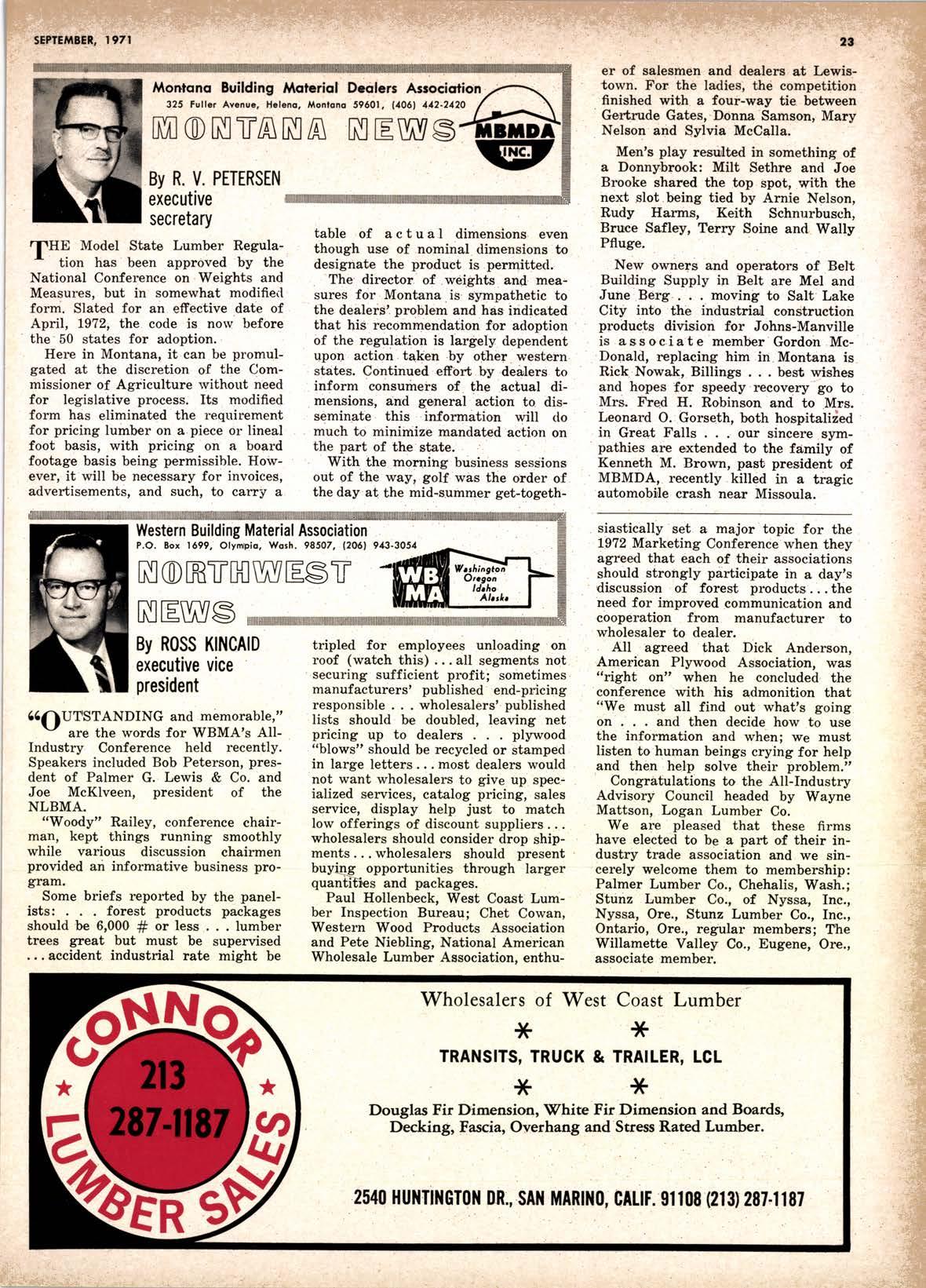
2 minute read
ltrEl [D@WS Cst tr Yt@ws
ROBERT KIMBLE president of the Lumber Merchonts Associotion of Norihern Colifornio
,15,16 El Comino Reol, Suite O f.os Altos, Colit. 91A22 (1t5J 94t-'t617 whether you order a unit 0r a carload.
S/E are all aware of the volumes of legislation flowing from the prolific pens of our legislators at the national and state level which affect consumerism. The preponderance of this legislation on consumerism is directed toward consumer awareness. The consumer is being conditioned through mass media to be concerned about the products he purchases. This move toward consumer education is certainly not new. In the late 1930's the development of synthetic fibers such as rayon resulted in the passage of the Wool Products Labeling Act of 1939; however, it was not until the mid-1950's that emphasis on providing the customer with information on ingredients of the product and the products'capabilities began.
Consumer legislation has placed an increased burden on the manufacturer in labeling and advertising his products. You, as the manufacturers' outlet, find that the consumer is more inquisitive about the products he will purchase. He questions the sales personnel concerning the composition of the product, the best use of the product, proper application and life expectancy. With the advent of the do-it-yourself era and the rapid increase in this type of trade, the dealer finds that he must be a walking encyclopedia of product knowledge. The customer expects the sales personnel to be thoroughly familiar with all aspects of the products he sells and it is apparent that when he isn't, the customer soon loses confidence in the dealer and his firn'r.
The do-it-yourselfer is a unique specimen who demands a full measure of service with every purchase which indicates the customer is inquisitive when he makes a purchase, no matter how small. He will freque4tly ask the salesman how to cut paneling, how to apply it to a particular surface, how to clean it, how to put molding on it, and how long it will last. He has the same questions regarding ceiling tile, carpeting, paint and many other home improvement products.
We know the customer is now demanding this type of service, therefore, what do we do to increase our capabil- ity to provide this service ? Many of our salesmen have used our products and have a knowledge of application. The salesman can discuss application with the customer from a personal experience point of view in many cases. Manufacturers' representatives usually provide sales personnel with a considerable amount of product knowledge, but unless the salesman is inspired and motivated he either will not place the maximum emphasis on the virtues of the product, or he will not speak convincingly to the customer about the product. Most of our kei salesmen cover many departments within our firm. The dealer must inculcate the salesmen to assimilate product knowledge on each item he sells. This is a never ending task, but the salesman must be instilled with the idea that he must do his homework and maintain product knowledge if he expects to feel that the retail lumber and building material business is a profession and not just a place to work.
Ours is a highly competitive business which demands more in the sphere of technical skills with each approaching year. You will certainly agree that a satisfied customer who feels he has received enthusiastic Dersonal service will return.
Fishing is great sport \uhrn you've got the time. But fishiirg around for lumber is somethine\else !










